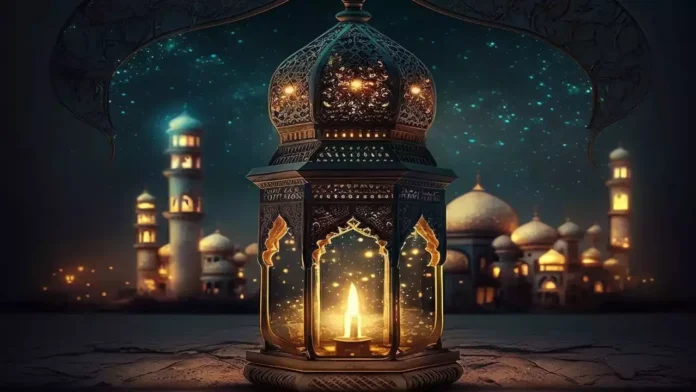As Eid-ul-Fitr 2024 dawns, Muslims around the world are preparing to celebrate the joyous occasion marking the end of Ramadan. This festive day is filled with prayers, feasting, and heartfelt greetings exchanged among friends, family, and loved ones. While the traditional Arabic greeting “Eid Mubarak” is widely known and used, there are numerous other ways to extend warm wishes for Eid in different languages. Here are 18 ways to wish “Eid Mubarak” in various tongues, fostering a sense of unity and inclusivity among diverse communities:
- In English: “Eid Mubarak!”
- In Arabic: “عيد مبارك” (Eid Mubarak)
- In Urdu: “عید مبارک” (Eid Mubarak)
- In Turkish: “Bayramınız kutlu olsun” (Happy Bayram)
- In Indonesian: “Selamat Idul Fitri” (Happy Eid-ul-Fitr)
- In Malay: “Selamat Hari Raya” (Happy Festival)
- In Bengali: “ঈদ মোবারক” (Eid Mubarak)
- In Persian: “عید مبارک” (Eid Mubarak)
- In Somali: “Ciid wanaagsan” (Happy Eid)
- In Swahili: “Eid Mubarak”
- In Hindi: “ईद मुबारक” (Eid Mubarak)
- In Punjabi: “ਈਦ ਮੁਬਾਰਕ” (Eid Mubarak)
- In Gujarati: “ઈદ મુબારક” (Eid Mubarak)
- In French: “Eid Mubarak” or “Bonne fête de l’Aïd”
- In German: “Frohes Eid-ul-Fitr” (Happy Eid-ul-Fitr)
- In Spanish: “¡Feliz Eid!” (Happy Eid)
- In Chinese (Mandarin): “开斋节快乐” (Happy Eid-ul-Fitr)
- In Russian: “С праздником!” (Happy holiday!)
These diverse greetings reflect the multicultural and multilingual tapestry of the global Muslim community, underscoring the universal spirit of joy and camaraderie that characterizes Eid-ul-Fitr celebrations. Whether spoken in Arabic, Urdu, Turkish, or any other language, the sentiment remains the same: wishing others happiness, prosperity, and blessings on this auspicious occasion.
Eid-ul-Fitr is a time for Muslims to come together in prayer, reflection, and gratitude for the blessings bestowed upon them during the holy month of Ramadan. It is also a time for acts of charity and kindness, as Muslims are encouraged to share their blessings with those less fortunate in their communities.
In addition to exchanging greetings and well-wishes, Eid-ul-Fitr celebrations typically involve special prayers known as Salat al-Eid, followed by festive gatherings with family and friends. Traditional dishes and sweets are prepared and shared, adding to the joyous atmosphere of the occasion.
As Muslims around the world come together to celebrate Eid-ul-Fitr, the exchange of greetings in different languages serves as a reminder of the diversity and unity within the global Muslim community. Regardless of language or cultural background, the message of peace, love, and solidarity resonates deeply during this special time.
Amidst the festivities and cultural diversity, Eid-ul-Fitr serves as a time of reflection and spiritual renewal for Muslims. It marks the culmination of a month-long period of fasting, prayer, and self-discipline during Ramadan. As the crescent moon heralds the end of fasting, Muslims gather in mosques and community centers to offer prayers of gratitude and seek forgiveness for any shortcomings.
Beyond the exchange of greetings and feasting, Eid-ul-Fitr holds deep spiritual significance. It is a time to reaffirm faith, strengthen bonds with family and community, and express gratitude for the blessings bestowed by the Almighty. The joyous atmosphere of Eid-ul-Fitr resonates with the core values of Islam, including compassion, generosity, and empathy towards others.
Moreover, Eid-ul-Fitr provides an opportunity for Muslims to reach out to those in need and share the blessings of the occasion with the less fortunate. Zakat al-Fitr, a form of charity given before the Eid prayer, ensures that everyone in the community can partake in the festivities and experience the joy of Eid.
In today’s interconnected world, the celebration of Eid-ul-Fitr transcends geographical boundaries, bringing together Muslims from diverse backgrounds and cultures. Whether celebrating in bustling metropolises or remote villages, Muslims unite in the spirit of Eid, reinforcing their sense of belonging to a global community bound by faith.
As the sun sets on another Ramadan and the dawn of Eid-ul-Fitr approaches, Muslims eagerly anticipate the joyous festivities that await. From the exchange of greetings in different languages to the heartfelt prayers offered in unison, Eid-ul-Fitr serves as a beacon of hope, unity, and renewal for Muslims around the world.

